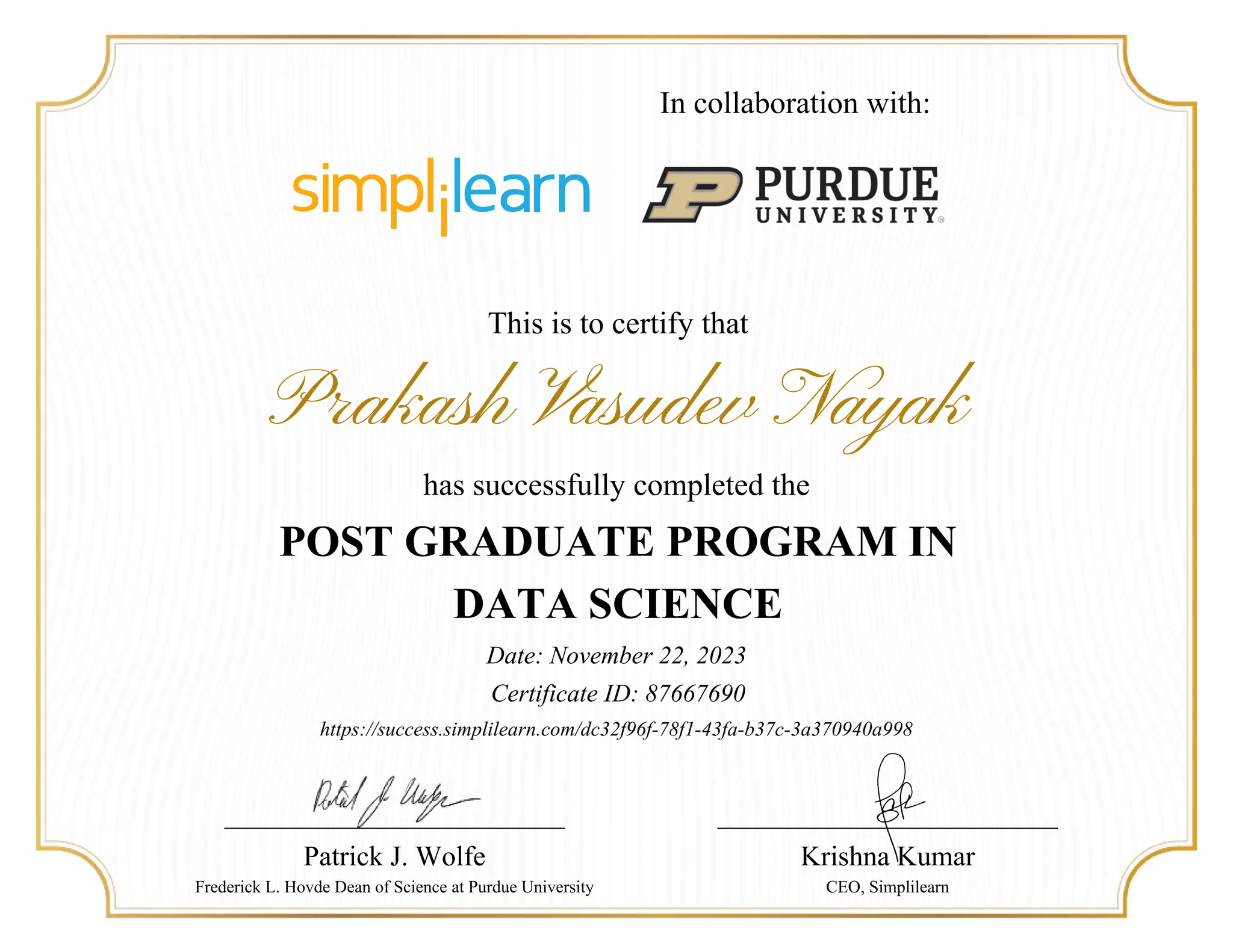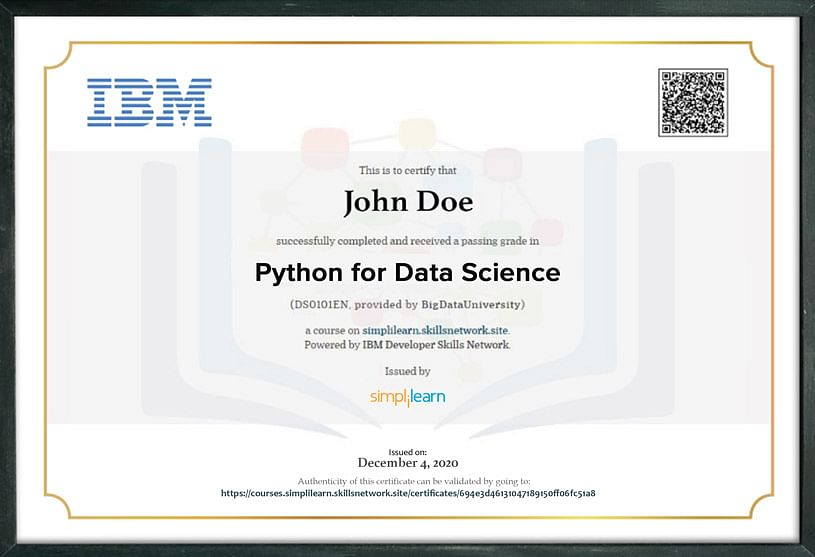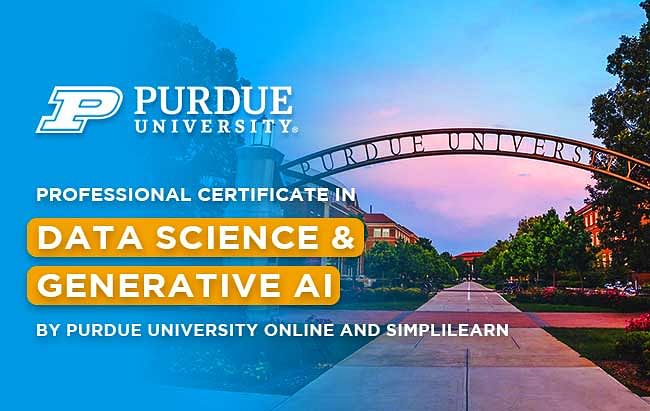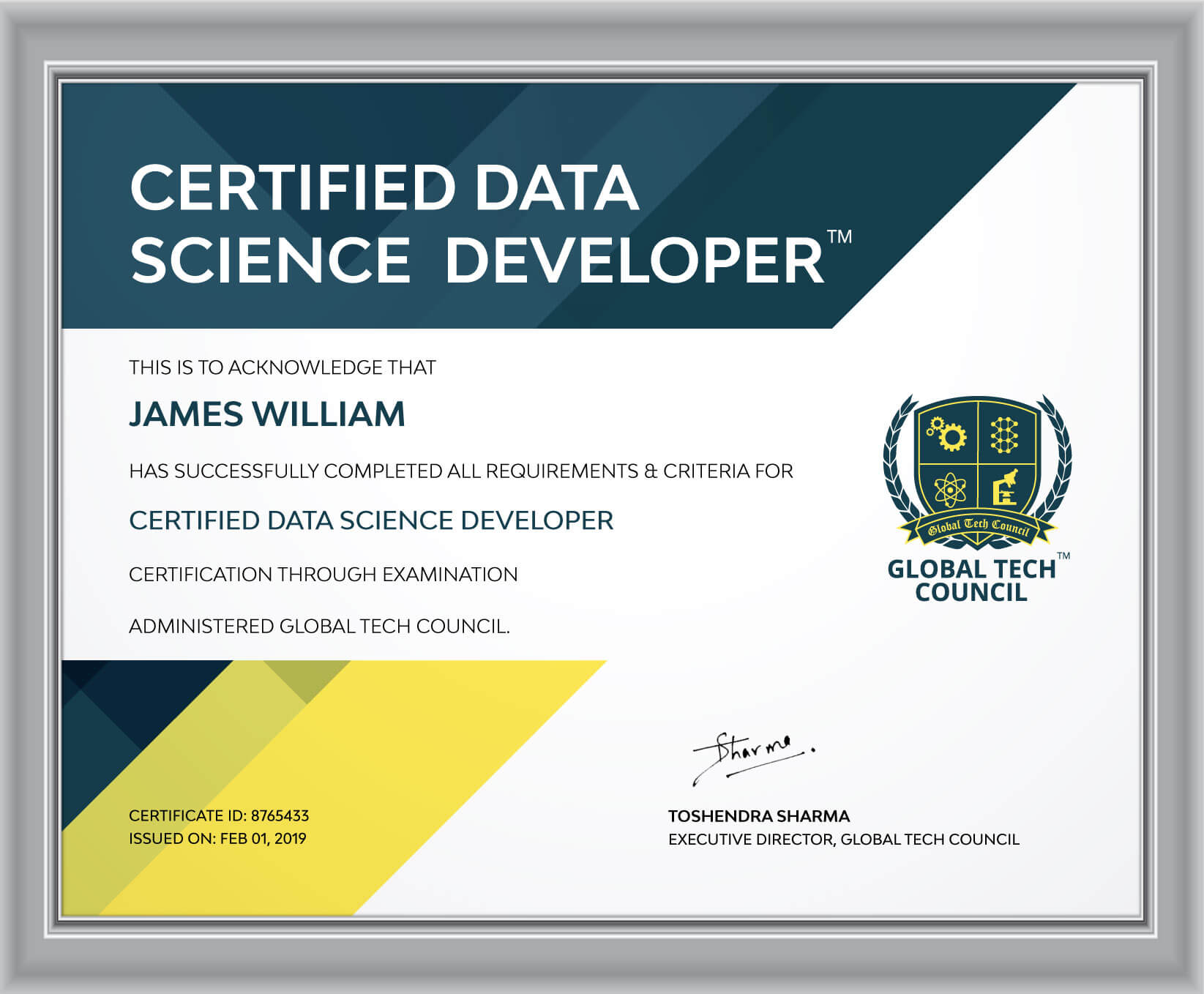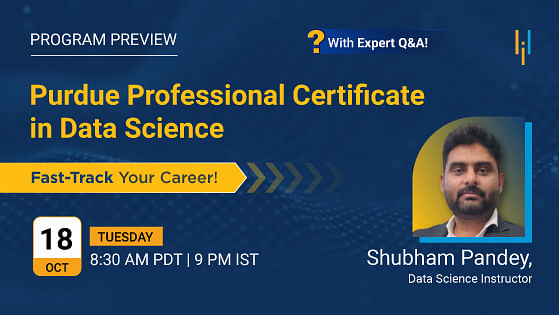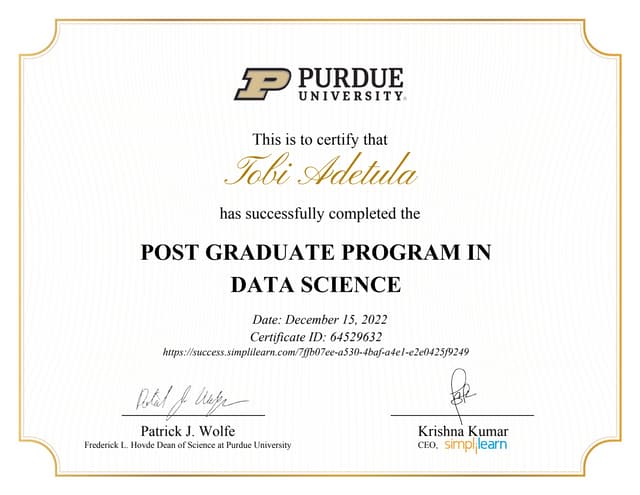Purdue University Data Science Certificate
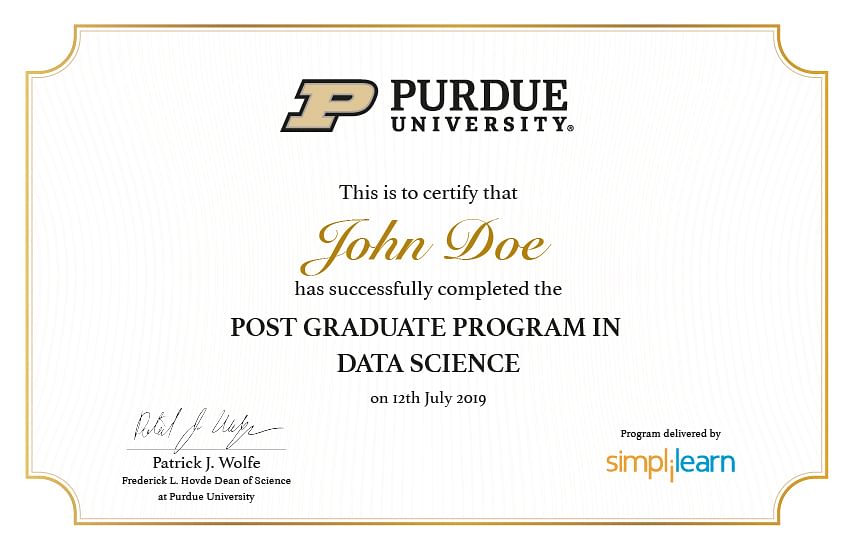
Purdue University is bolstering its commitment to data science education with a new certificate program designed to equip professionals with in-demand skills in a rapidly evolving field. The certificate, offered through Purdue Online, aims to provide a flexible and accessible pathway for individuals seeking to enhance their expertise in data analysis, machine learning, and related areas.
This initiative addresses the growing demand for data scientists across various industries. It is particularly relevant in today's data-driven world. The program's design emphasizes practical application and aims to bridge the gap between academic theory and real-world industry needs.
Program Overview
The Data Science Certificate program at Purdue University is a fully online, non-credit bearing certificate program. It's structured to allow working professionals to upskill without disrupting their current careers. The program focuses on providing foundational knowledge and hands-on experience in key data science concepts.
The curriculum covers a wide range of topics. It includes data wrangling, statistical modeling, data visualization, and machine learning. Students will also learn how to apply these techniques to solve real-world problems.
According to Purdue Online, the certificate is designed for individuals with a bachelor's degree. Some background in quantitative fields such as mathematics, statistics, or computer science is recommended but not strictly required. The program’s modular structure allows learners to customize their learning path based on their existing skills and career goals.
Key Components
The certificate program comprises several modules. Each module is designed to be completed within a specific timeframe. These modules include courses such as "Data Analysis and Visualization," "Machine Learning Fundamentals," and "Statistical Inference and Modeling."
Students will engage in various learning activities. These include online lectures, hands-on coding assignments, and collaborative projects. The program incorporates industry-standard tools and technologies, such as Python, R, and various machine learning libraries.
Assessments are based on practical application of learned concepts. Students will participate in projects that mimic real-world data science scenarios. This ensures graduates are well-prepared to contribute effectively in their respective workplaces.
Impact and Significance
The launch of this data science certificate by Purdue University is significant for several reasons. It underscores the university's commitment to addressing the critical skills gap in the data science field. It also provides accessible educational opportunities for individuals looking to advance their careers.
The program's online format makes it accessible to a wider audience. It removes geographical barriers and offering a flexible learning environment. This accessibility can be particularly beneficial for working professionals or individuals in underserved communities.
"Data science is transforming industries across the globe," said Dr. Sarah Thompson, Director of Purdue Online. "This certificate program is designed to empower individuals with the skills and knowledge they need to thrive in this data-driven world."
Future Implications
The success of the Purdue University Data Science Certificate could pave the way for similar initiatives at other institutions. It highlights the growing importance of accessible and practical data science education. It provides a model for universities looking to meet the evolving needs of the workforce.
Furthermore, the program could contribute to diversifying the data science field. By providing accessible education, the certificate can attract individuals from various backgrounds. This is crucial for fostering innovation and ensuring that data-driven solutions are equitable and inclusive.
The certificate program's emphasis on real-world application will likely benefit participating industries. Graduates will be equipped with the skills to analyze data, identify trends, and make informed decisions. This can lead to increased efficiency, improved products and services, and a stronger competitive edge for organizations.
